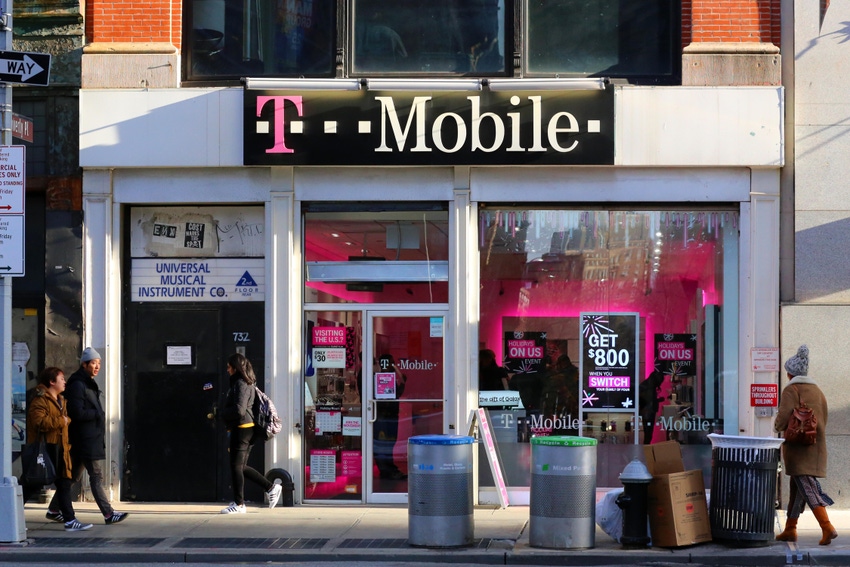T-Mobile's fiber plans may have matured with rumored $1B Lumos deal
T-Mobile is reportedly preparing to ink a $1 billion joint venture with EQT-backed Lumos Networks for fiber. Such a move would expand T-Mobile's fiber ambitions, but may represent a new tactic.

T-Mobile is in talks to invest up to $1 billion into a joint venture with regional US fiber network operator Lumos Networks, according to German publication Handelsblatt,
Officials from Lumos and T-Mobile declined to comment on the report.
If the report proves accurate, it would represent a further step forward by T-Mobile into the US fiber market. And it would come just ahead of the release of around $42.5 billion in Broadband Equity Access and Deployment (BEAD) government subsidies by US states.
However, a joint venture between Lumos and T-Mobile may also represent a slight deviation from T-Mobile's fiber strategy. T-Mobile currently offers fiber services in 13 smaller US cities via partnerships with open access fiber companies like Tillman FiberCo, SiFi Networks and Intrepid Networks.
Lumos, meanwhile, does not promote itself as an open access fiber operator. Instead, the company – backed by Swedish investment firm EQT – provides Lumos-branded fiber services to around 250,000 homes and businesses across its North Carolina, Virginia and South Carolina footprint. The company hopes to grow that footprint to 1 million homes in the next five years.
Fiber ambitions
The Handelsblatt report generated nods among some analysts.
"We aren't surprised by the story," the financial analysts with New Street Research wrote on Monday. "T-Mobile management has been hinting at more deals with fiber companies. Lumos strikes us as a strong partner, based on the success they have had in their existing operations."
"Lumos received a major investment from EQT in 2018 ... so it's natural that they might start to recoup some of that investment six years later," Jim Patterson of Patterson Advisory Group wrote in his weekly newsletter.
Like T-Mobile itself, as well as many other US telecom players, Lumos has a long and complex corporate history.
The company traces its origins back more than a decade ago to a split with regional provider nTelos, which created Lumos Networks as a publicly traded company in 2011. In 2017, EQT took over Lumos and, since then, has combined it with other regional providers like Spirit Communications and NorthState.
Today, Lumos offers fiber in Burlington, Mebane and Goldsboro, North Carolina; Chesapeake, Virginia; and Columbia, South Carolina. It's also planning to build fiber in a handful of other cities including Durham, North Carolina, and Portsmouth, Virginia.
Lumos is likely to pursue funding through the Biden administration's BEAD program, which is now funneling money to providers via state governments. For example, Lumos last month announced it will use around $1.2 million from South Carolina's American Rescue Plan Act (ARPA) Capital Project Fund Grant Program to expand fiber to around 700 homes and small businesses in the state.
Magenta-shaded fiber
As Light Reading has previously reported, T-Mobile is buying wholesale connections on fiber networks from regional open access operators like Tillman FiberCo, SiFi Networks, Intrepid Networks and Pilot Network in order to offer T-Mobile-branded fiber Internet connections. According to T-Mobile's fiber website, the operator is now offering three tiers of fiber service, starting at 500 Mbit/s connections for $55 per month on up to 2 Gbit/s for $100 per month.
T-Mobile does not yet appear to offer any incentives to tie its mobile business to its fiber offerings. But T-Mobile executives have recently hinted at plans to expand the operator's fiber efforts.
"If we did something in fiber, it would be in a more capital-light structure, probably in a partnership with somebody else. But that, I would say, is looking more and more likely that we would do something there," T-Mobile's Mike Katz said recently.
T-Mobile officials have described T-Mobile's open access fiber partnerships as a "capital light" way for T-Mobile to play in the fiber industry.
"We're not building any new fiber. That's not what we do. But it's partnering with existing fiber players," Jon Freier, president of T-Mobile's consumer group, added at a recent Deutsche Bank conference.
Patterson, of Patterson Advisory Group, suggested in January that T-Mobile pursue the fiber space via a $3 billion convertible bond that it would offer to companies receiving BEAD funding for fiber networks in rural areas.
"This will not work with certain types of participants (e.g., an electric cooperative or a municipality) but would work for many potential bidders," he wrote. "With the convertible bond approach and perhaps some sales-driven warrants, this might be a clever way for T-Mobile to win in rural markets without meaningful dilution."
About the Author(s)
You May Also Like




_International_Software_Products.jpeg?width=300&auto=webp&quality=80&disable=upscale)







